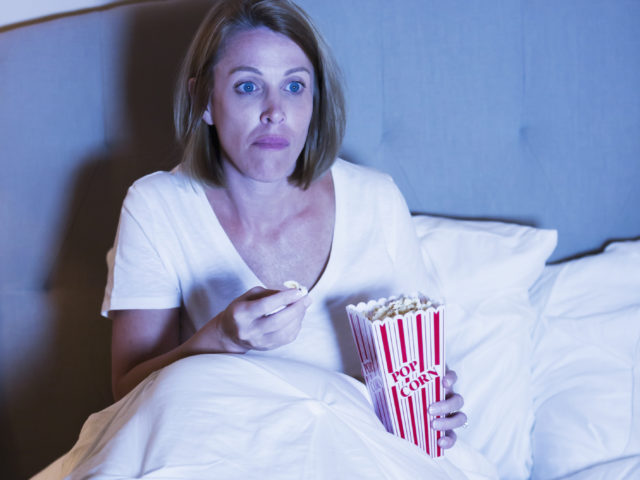Binge-watching, or continuously viewing a series of shows or movies without a real break, has become a favorite activity in American society and around the globe. This mass consumption of TV and movies is the result of readily available programming at our fingertips 24/7, with instant access to our favorite entertainment.
But when your favorite show becomes more important than your much-needed nightly snooze, you could be in for one grave plot twist: poor health.
How Popular Is Binge-Watching?
A recent survey estimated that as many as 40 percent of millennials have weekly binge-watching sessions, which is technically defined as watching continuous episodes in a six-hour sitting or longer, without true breaks.
This trend has indeed captivated many, but its negative effects on sound sleep are more apparent than ever. The American Academy of Sleep Medicine has confirmed that the more that young people binge-watch television, the higher their cognitive levels of pre-sleep arousal – making it more difficult to calm down and fall asleep.
So, while you may think that your favorite show is a much-needed stress reliever after a long day, that relief can be counteracted by overexposure. Television presents us with a lot of stimulation, and all of that action can leave us in a state of wakefulness. This means that those who binge-watch not only have poor sleep quality, but also wake up feeling sleepy – and they may develop insomnia as a result.
Is Binge TV Addictive?
Netflix devotees may think it’s outrageous to compare binging on TV to taking drugs, but in a way our brain is being similarly stimulated and controlled. When we binge-watch, our brain generates dopamine, which is the feel-good chemical that signals feelings of pleasure.
Additionally, we become emotionally attached to the shows and the characters we invest our time in – and their demise or series finales can produce feelings from depression to euphoria to anxiety. No wonder it’s not a good idea to try going straight to bed afterward.
Artificial Light Exposure
Another negative aspect of tuning into the TV late at night is the synthetic light emitted by it. Just as special light therapy can be used to adjust one’s circadian rhythm (which regulates our waking and sleeping patterns), exposing oneself to the screens of tablets, televisions, and smartphones before bed can affect our sleeping habits. These devices emit a type of blue light that signals the brain to cease production of melatonin – the hormone that makes us ready for shut-eye.
Studies have shown that REM (rapid eye movement) sleep will be delayed after TV screen exposure. If you just can’t put down the remote altogether, try to set aside 30 minutes before bed to wind down, sans electronics. You’re sure to see the difference.
Who Can Help Me Sleep?
If you’re one of the 361,000 people who watched the second season of Stranger Things in its entirety the day it was released – or simply someone who feels their TV has taken over their life a bit too much – it’s time to consider getting a medical evaluation by a physician who specializes in sleep medicine.
If you’re looking to improve your sleep habits, contact Gingras Sleep Medicine today. Since 1999, double board-certified physician Dr. Jeannine Gingras has been upholding her motto of “better nights and brighter days for children and adults.”
For more information about her services or to schedule an appointment, call us at (704) 944-0562 or complete our online appointment request form now. Let us help you stop counting sheep and start looking forward to waking up in the morning, feeling bright and ready for the day.

